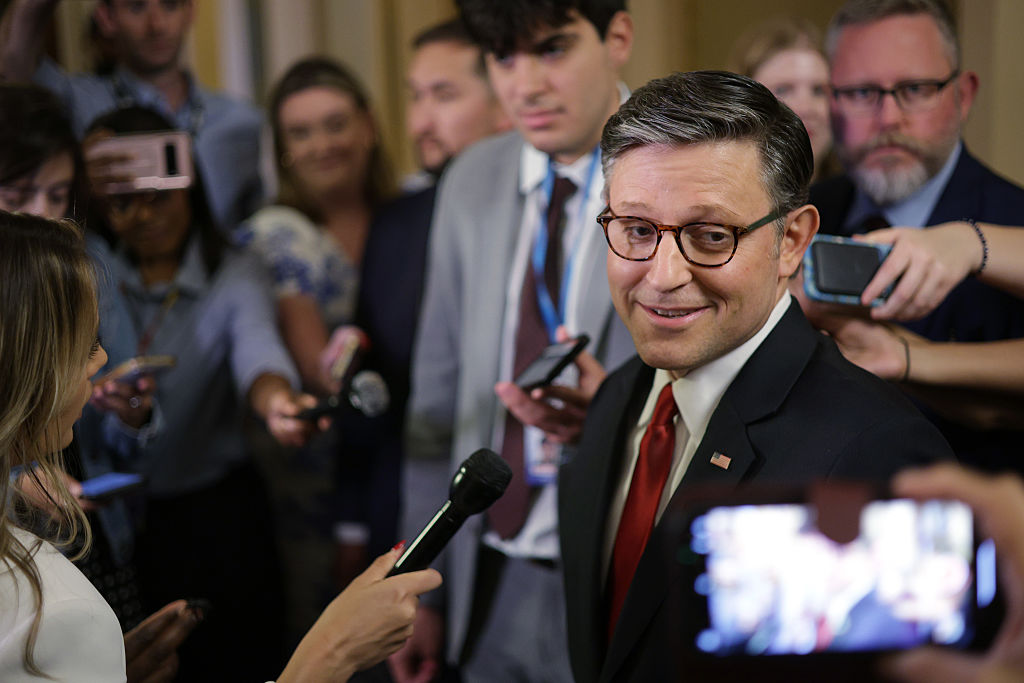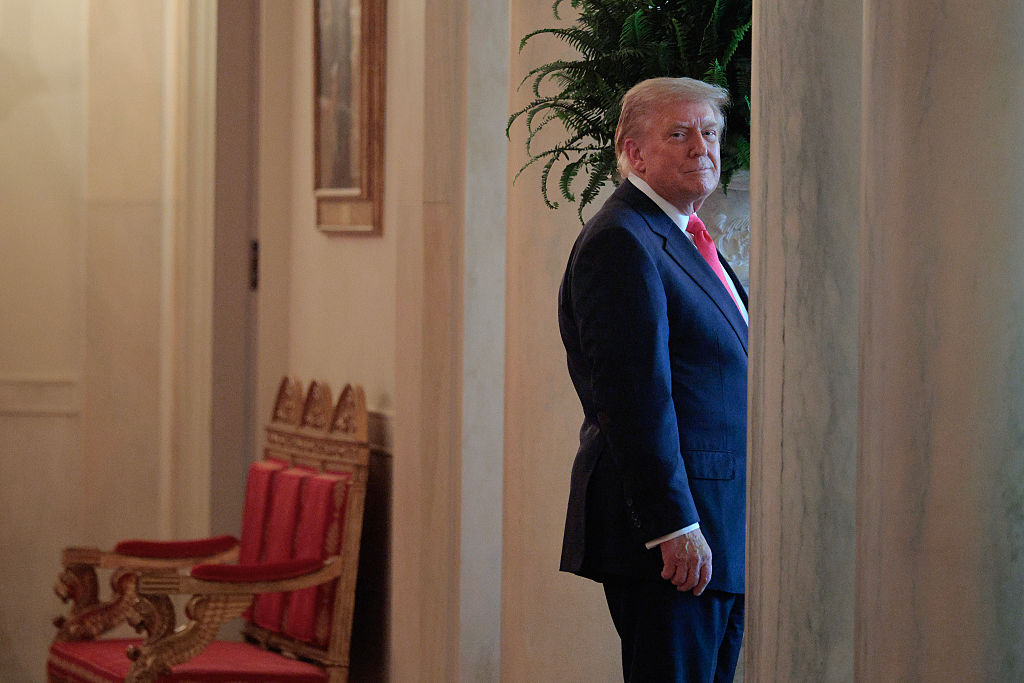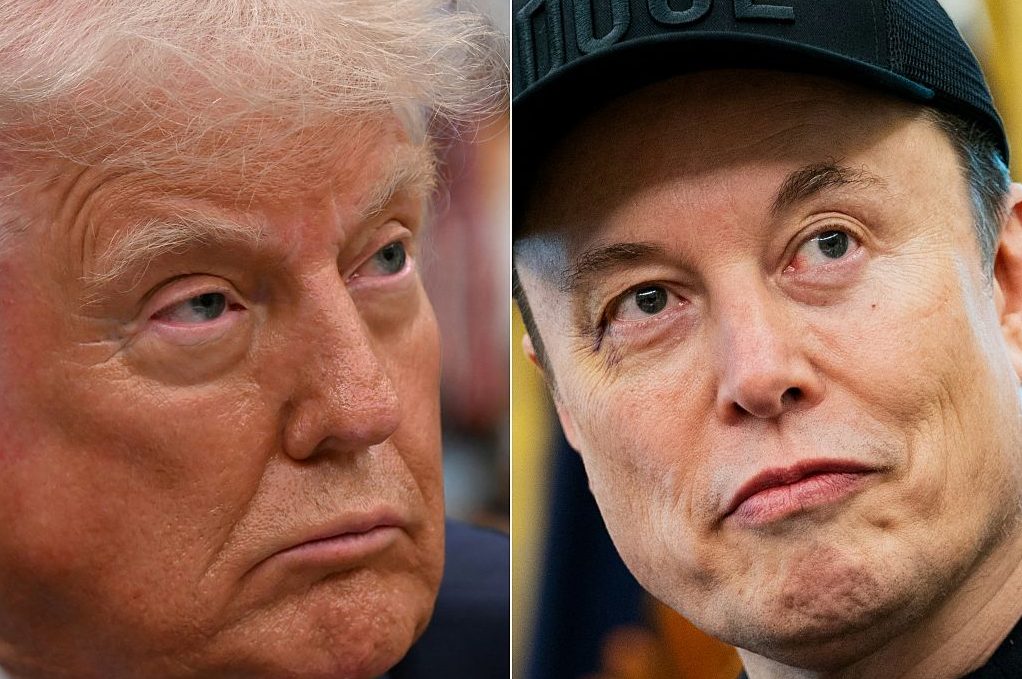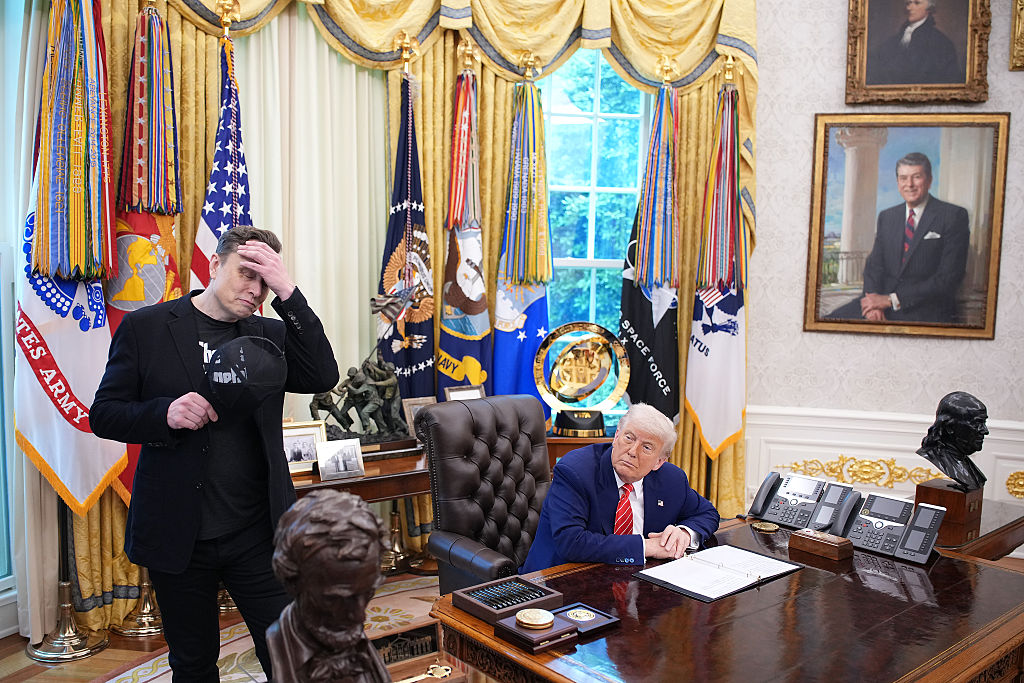Welcome to Thunderdome, where the consensus view is that Ronna Romney McDaniel is a disaster. The longest tenured RNC chair in a century, McDaniel has navigated the Republican Party through one disappointing election after another, holding on to power simply because Donald Trump wants her to have the job and no one strongly qualified has chosen to challenge her for it. On the podcast today, we talk about McDaniel’s prospects, whether the RNC should ditch her, Nikki Haley’s social media botch and the rise of third-party threats to make 2024 even more chaotic. Subscribe and listen here!
The blame for the off year falls on Ronna
Is this the one thing Vivek got right?
McDaniel’s fate at the RNC has long been a subject of fascination, in part because she is the longest serving chair in more than a century. She has survived frictions with Trump and poor election nights before. But the pile-on she faces now is growing and threatens to add a layer of uncertainty to the GOP’s campaign operations, right as the general election season comes into focus.
While several presidential candidates have been upset with the thresholds the RNC set for debate qualifications — whether they were too high or too low — Trump and his allies have registered an entirely different set of complaints. The ex-president has pressed McDaniel to cancel the debates altogether and devote more resources to election integrity efforts, according to two people briefed on the conversations. Trump allies say the former president has been hearing complaints from donors in recent weeks about the committee, and one of those allies said he had “soured” on McDaniel’s performance…
Members of Congress have begun joining the chorus of critics, too. And on Wednesday, biotech entrepreneur Vivek Ramaswamy’s campaign launched FireRonna.com, an online petition calling for her ouster. At the third primary debate, just days earlier, Ramaswamy had gone after McDaniel while on stage — a surprise attack he had brainstormed at home earlier that day with conservative commentator Benny Johnson, one of the top contributors to Turning Point USA.
“I think I should just say that, ‘Ronna McDaniel should resign, there needs to be some accountability, she should get up on stage right now. She’s here, Ronna come up here and resign,’” Ramaswamy said to Johnson, according to a video that Johnson posted to his social media feed.
McDaniel responded to Ramaswamy and criticisms of her on Sunday saying the “circular firing squad” of blame is “hurting” the GOP.
One potential point of contention: Ron DeSantis and Nikki Haley have been invited to debate on Laura Ingraham’s show, a debate DeSantis has already agreed to. McDaniel’s vindictive prevention of any outside debates could be a point of contention where the candidates decide moving on is in their interest.
Nikki Haley’s social media incoherence
Charles Cooke on the bungled Nikki comments:
Well, which is it? Is the problem here that foreign bots present a “national security threat”? Or is the problem a lack of civility online? Certainly, these two matters overlap from time to time. But they aren’t the same issue. Incivility on the internet is not a “national security threat.” And, irrespective of whether they pose a “national security threat,” not all foreign bots are uncivil. Watching Haley, I can’t help but wonder if she’s reasoned herself backwards from her starting position: Everyone online ought to be verified, ergo . . .
Nor would these two issues be “fixed” in the same manner. If all users online were forced to submit to verification, most foreign bots would be removed as a result. By contrast, it would be possible for social media sites to purge as many foreign bots as they could without forcing the verification of American users. Haley doesn’t tell us which of these two problems she think is greater. Indeed, she doesn’t distinguish between them at all. That’s a lousy way to approach the imposition of an extremely heavy-handed government regulation.
In my view, Haley’s assumptions are wrong. Naturally, I have no use for foreign bots. But anonymous speech can be extremely valuable. The Federalist Papers and Anti-Federalist Papers were both published anonymously. And, in our own era, it is one of the best ways to avoid the rampant censoriousness that has infected so many of our elite institutions. It is true that many of the worst people on the internet spew their bile from behind a cloak. It is also true that some of the best people on the internet are able to speak as freely as they are only because their anonymity inoculates them against retaliation. As a foundational political matter, I do not consider it to be the role of the federal government — let alone the executive branch of the federal government — to make our national conversations more civil. If we have a problem with bad behavior from foreign actors, then we ought to address that in as limited a fashion as possible. To tie that effort in with the wholesale superintendence of American debate would be inappropriate in the extreme.
On the flip side, Haley is coalescing the donor class behind her efforts in a significant way, including adding Mitt Romney money-man Spencer Zwick.
The abortion hype doesn’t stand on data
Karl Rove argues that people are taking the wrong lessons from last week.
There’s a tendency in politics to ascribe success and failure to one thing when it’s really more complicated. That has been the case with most coverage of last week’s elections. “Abortion issues burn GOP” screamed ABC News. “Democrats see big wins” shouted Roll Call, which said “access to abortion” was “front and center.”
The key example offered for this line of reasoning was Virginia’s state legislative elections, in which Democrats held the Senate, losing only one seat, and flipped the House by picking up three. Vox’s Rachel Cohen described the results in Virginia and elsewhere as “a resounding victory for Democrats and abortion rights supporters.” But is holding a 21-19 majority in the Senate and a 51-49 majority in the House really a resounding victory?
I think not. Virginia is a blue state that Mr. Biden carried 54 percent to 44 percent in 2020. Last week Republicans won in seven House districts Mr. Biden carried in 2020 by up to ten points and four Senate districts he won by up to nine points. Democrats didn’t flip a single district Donald Trump took. These margins don’t fit with the notion that abortion draws large numbers of independents and Republicans to vote for Democratic candidates.
Two factors probably had a bigger effect than abortion. The commonwealth was redistricted before the election. That benefited Democrats last week, according to Sean Trende, a senior election analyst at RealClearPolitics. Since Virginia is blue, the redistricting resulted in more solidly Democratic districts than solidly Republican ones. Mr. Trende was one of the special masters appointed by the Virginia Supreme Court to draw the lines.
Offsetting the Democratic redistricting advantage was the popularity of Virginia’s Republican governor, Glenn Youngkin. An October 16 Washington Post/Schar School poll found that 54 percent of Virginians approved of the governor’s job performance and 39 percent disapproved. Only 43 percent of the same respondents thought Mr. Biden was doing a good job, while 55 percent didn’t. This favorability advantage for Republicans helped GOP candidates grab districts that normally would have gone Democratic.
Given that their state has trended Democratic for years, Virginia Republicans held up admirably against a challenging map. The GOP would cheer if it pulled off similar margin changes in 2024. If Republicans flipped every US House seat Democrats won by ten points or less in 2022, the GOP would rack up fifty seats — a 271-seat majority, the biggest GOP seat haul since 1928.
GOP Senate candidates would also be sitting pretty if they do as well in 2024 as Virginia Republican Senate hopefuls did last week. If GOP candidates won every state Mr. Biden carried by nine points or less in 2020 and all the Trump states, there would be new Republican senators from Arizona, Michigan, Minnesota, Montana, Nevada, Ohio, Pennsylvania, West Virginia and Wisconsin — giving the GOP a fifty-eight-seat majority.
One more thing
It seems to be slowly dawning on people that a major candidate from a third party is likely to be on the ballot in virtually every state. The presence of Joe Manchin on that list is potentially election-breaking. But RFK Jr. has already become the first third party candidate to surpass Ross Perot’s 20 percent threshold in polling averages, and it’s more than just an expression of resistance to Biden and Trump. The point is just this: polls that just ask about the two major party candidates are effectively useless. No one is only going to have that option, and in a scattered media moment where there are unlikely to be any debates, the potential for random outcomes in key states with small but meaningful electoral college votes could be very real.


























Leave a Reply